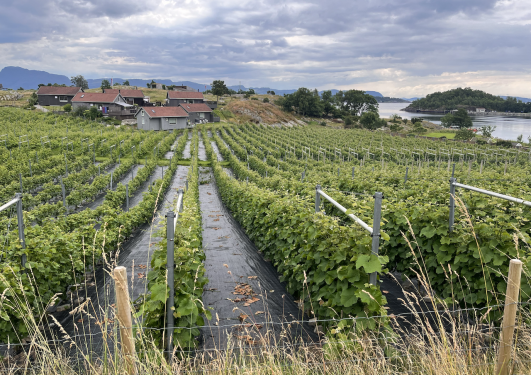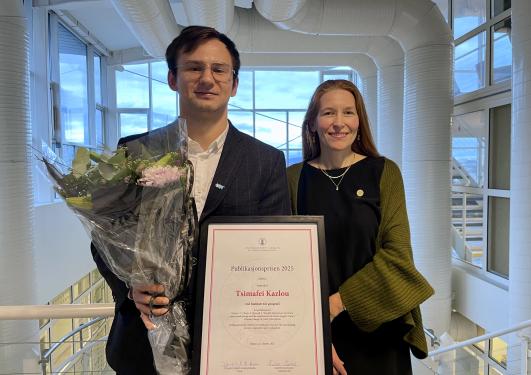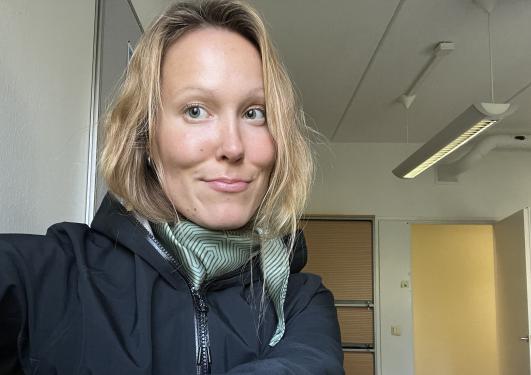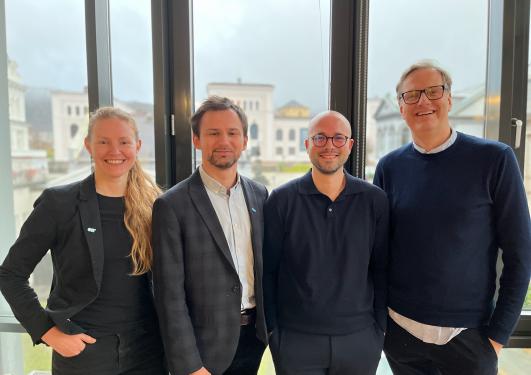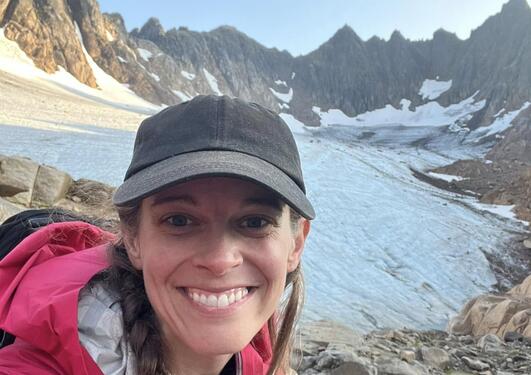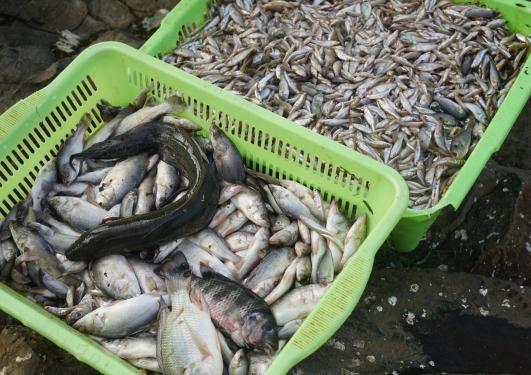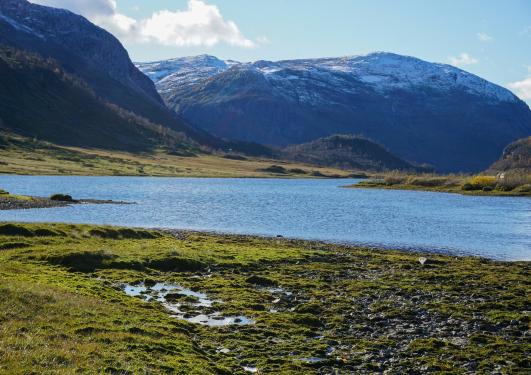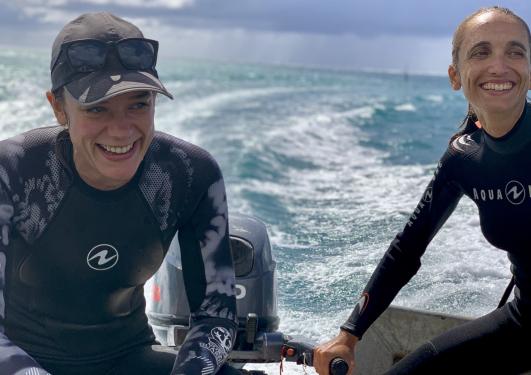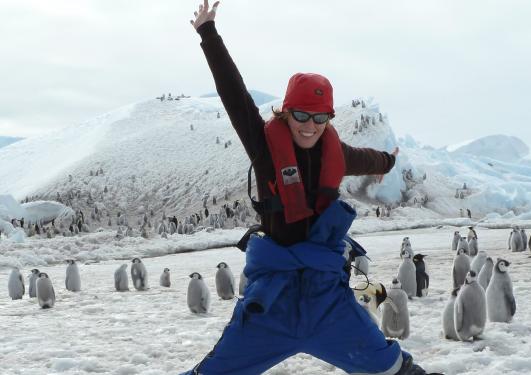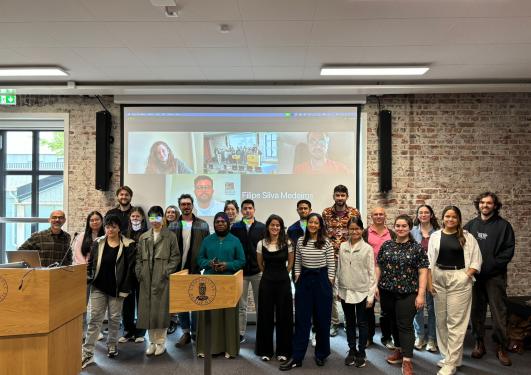News archive for Department of Geography
Aquaculture and fisheries form the foundation of the blue economy, sustaining food security and livelihoods globally (Boyd et al., 2022). In Kisumu, Omena (small fish) and farmed tilapia are vital for household nutrition and community income. Studying their access and availability helps understand how local fisheries contribute to sustainable and inclusive economies.
My master project is an exploratory study of the emerging possibility for a Norwegian wine industry due to climate change.
The Faculty Board has awarded Tsimafei Kazlou this year's Publication Award 2025.
We have two deadlines this year: 2 June and 1 December. Congratulations to all who submitted the thesis in 2025!
Rogue or freak waves (monster waves) are exceptionally large waves that can suddenly loom into existence, seemingly from nowhere. Are these waves truly different from ordinary storm waves, or are they just what you should expect to see if you wait long enough?
Veera Ylipieti graduated with a master's degree in Geographies of Sustainable Development in 2022. She is now working as climate and energy specialist in Regional Council of Lapland.
This autumn, CET researchers had three articles accepted for publication in Nature-journals. – This is a result of a dedicated focus on quality in publication over time, says CET Director Håvard Haarstad.
The aim of my master’s project is to study the glacier fluctuations of the cirque glacier Blåskavlen, located on the Lofoten archipelago in northern Norway.
My master's project explores the Gendered Geographies of Gentrification in Ezulwini, Eswatini.
The multi-disciplinary SmallFish4Food and SmallFishClim projects team initiated Lake Victoria research activities and collaboration to study the role of small fish trade for food security and nutrition.
The collaborative project ECOBUDGETS will explore ways to integrate climate and nature budgets into administrative and political decisions at the municipal and county levels.
Coral reefs produce a lot of oxygen during the day (thanks to photosynthesis), but at night the oxygen levels decrease. Can this threaten fishes at the reef, or do they have strategies to survive? To find out we spent six months of fieldwork and experiments on the island of Moorea in French Polynesia.
The Antarctic ice shelves – the floating glaciers surrounding most of the continent – are melting from below as oceanic currents bring warm water into the cavity. But how and how fast is the ice melting? In this Ocean Science Bar, you will learn why Antarctic ice shelves matter, about what happens below them, and about what it’s like to do fieldwork ”down south”.
In August of 2024, the University of Bergen System Dynamics Group helped organize this year's International System Dynamics Conference. It was a unique experience to bring system dynamicists from across the world to Norway and establish a collaborative learning environment.
With new legislation restructuring higher education in Norway, English language master's programs face new obstacles in recruiting students. The System Dynamics Group at the University of Bergen has faced these challenges head on and is working towards maintaining the vibrant community of diverse academic interests and cultural backgrounds it is known for.
Our very own Professor Emeritus Pål Davidsen received the Lifetime Achievement Award for his contributions to the field of System Dynamics at the 42nd ISDC.
Light is probably the most varying environmental variable in pelagic ecosystems, and the most ignored in ecological studies. In this Ocean Science Bar, you will learn how light structures the distribution of zooplankton and fish.
The UiB System Dynamics Group is hosting the largest international conference on system dynamics in Bergen next week from August 4 to 8, 2024.
Pages
- December 2025 (2)
- October 2025 (1)
- June 2025 (1)
- February 2025 (2)
- December 2024 (1)
- November 2024 (3)
- October 2024 (2)
- September 2024 (2)
- August 2024 (3)
- July 2024 (2)
- June 2024 (1)
- April 2024 (2)
- March 2024 (1)
- February 2024 (1)
- December 2023 (2)
- November 2023 (1)
- October 2023 (5)
- September 2023 (2)
- June 2023 (2)
- May 2023 (1)
- March 2023 (1)
- February 2023 (1)
- December 2022 (1)
- August 2022 (1)
- June 2022 (1)
- May 2022 (1)
- March 2022 (2)
- February 2022 (2)
- November 2021 (1)
- September 2021 (2)
- June 2021 (1)
- May 2021 (1)
- March 2021 (1)
- December 2020 (1)
- September 2020 (4)
- June 2020 (2)
- May 2020 (1)
- March 2020 (1)
- February 2020 (1)
- December 2019 (1)
- November 2019 (1)
- May 2019 (2)
- March 2019 (1)
- February 2019 (1)
- December 2018 (1)
- November 2018 (2)
- October 2018 (1)
- July 2018 (2)
- June 2018 (1)
- May 2018 (3)
- April 2018 (1)
- February 2018 (1)
- January 2018 (4)
- November 2017 (3)
- October 2017 (1)
- September 2017 (1)
- July 2017 (1)
- June 2017 (1)
- April 2017 (1)
- January 2017 (1)
- December 2016 (1)
- November 2016 (3)
- October 2016 (4)
- September 2016 (2)
- August 2016 (1)
- June 2016 (2)
- December 2015 (1)
- November 2015 (1)
- October 2015 (5)
- August 2015 (1)
- June 2015 (1)
- May 2015 (1)
- April 2015 (1)
- February 2015 (2)
- January 2015 (2)
- November 2014 (1)
- September 2014 (3)
- August 2014 (1)
- April 2014 (1)
- March 2014 (1)
- January 2014 (1)
- December 2013 (2)
- October 2013 (3)
- June 2013 (1)
- May 2013 (2)
- March 2013 (1)
- December 2012 (3)
- November 2011 (1)
- October 2011 (2)
- January 2011 (2)
- November 2010 (2)
- August 2010 (1)
- December 2009 (1)
- October 2009 (3)

